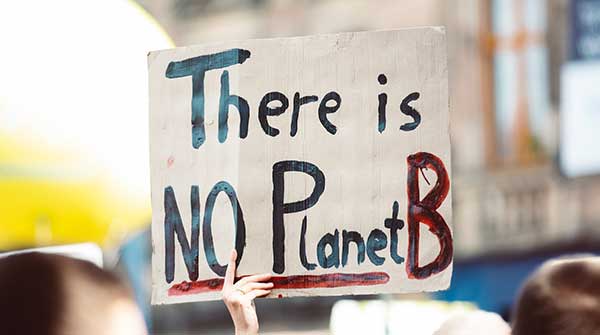Despite some progress being made at COP28
 Addressing climate change and curbing rising greenhouse gas emissions is a highly divisive issue, marked by a web of intricate factors. On one side, we have major consumers of fossil fuels, the leading contributors to pollution, while on the other side, there are oil and gas producers and exporters. Somewhere in the middle, the global south, despite its minimal carbon footprint, is grappling with the severe consequences of climate change.
Addressing climate change and curbing rising greenhouse gas emissions is a highly divisive issue, marked by a web of intricate factors. On one side, we have major consumers of fossil fuels, the leading contributors to pollution, while on the other side, there are oil and gas producers and exporters. Somewhere in the middle, the global south, despite its minimal carbon footprint, is grappling with the severe consequences of climate change.
The issue is undeniably contentious. The world’s increasing consumption of fossil fuels is driving up temperatures across the planet. The globe has already warmed by 1.2° Celsius, and experts warn that 2023 may go down as the warmest year in the past 100,000 years, resulting in a surge of storms, floods, droughts, and devastating wildfires on a global scale.
The stark divisions among nations were prominently on display at the recently concluded United Nations Climate Change Conference, or COP28. Despite the historical significance of the original UN climate agreement in 1992, reaching a consensus on this critical issue proved elusive until Wednesday – some 24 hours later than the scheduled close of the conference on December 12.
 Photo by Markus Spiske |
| Related Stories |
| OPEC+’s ability to influence oil markets dwindling
|
| OPEC+ divisions on output quotas take centre stage
|
| The IEA vs. OPEC: Who’s right on the future of oil?
|
After two weeks of intense deliberations and numerous sleepless nights, delegates eventually agreed on the language of the final communiqué. However, this was far from a straightforward process and necessitated multiple revisions. The initial goal of “phasing out fossil fuels” was modified to a more diplomatic stance of “transitioning away from fossil fuels in energy systems, in a just, orderly, and equitable manner.”
Although the compromise fell short of promising an end to oil and gas use, it represented a significant shift. For the first time in any UN climate agreement, the world collectively acknowledged the imperative need to begin “transitioning away” from fossil fuels, starting this year.
This consensus did not come without its challenges. When the initial draft of the COP28 agreement mentioned the “phasing out” of fossil fuels, it triggered a strong reaction from OPEC+ states, which had anticipated increased pressure during the conference. On December 8, The Guardian reported that OPEC+ had warned its member countries that “pressure against fossil fuels may reach a tipping point, with irreversible consequences” at COP28. It urged the oil states to “proactively reject any text or formula that targets fossil fuels, rather than emissions,” underlining this would “put our people’s prosperity and future at risk.”
In a letter dated December 6, OPEC Secretary-General Haitham al-Ghais called on OPEC members to resist any agreement directly targeting fossil fuels. Throughout the conference, OPEC emphasized targeting emissions through methods like carbon capture, rather than a focus on fossil fuels. Bloomberg and Reuters reported the letter was shared with OPEC allies such as Russia and Mexico.
It was at this stage that energy diplomats went into overdrive. Although an orderly transition was agreed upon, no date was set to complete the process. The agreement also made clear the near-term goals of achieving net-zero emissions by 2050. It further called for the world to cut greenhouse gas emissions by 43 percent by 2030 as compared with 2019 levels.
Another critical aspect was the necessity of a roadmap to provide financial assistance to the global south, which has been severely affected by changing climate trends. The melting of glaciers, particularly in the Himalayas, has resulted in flash floods in parts of the world. Pakistan’s devastating flood last year was attributed to such climate changes. “The people of Pakistan are the victims of a grim calculus of injustice,” UN Secretary-General António Guterres told the General Assembly in October 2022 after visiting Pakistan. He then reminded the world that while the country was responsible for less than one percent of global greenhouse gas emissions, it was paying a “supersized price for man-made climate change.”
Recognizing the immense challenges faced by countries disproportionately affected by global climate changes and emissions, the summit established a loss and damage fund. This marked a hard-won victory for developing nations and signified a commitment by major polluting nations to provide financial support to those hardest hit.
However, commitments to the fund remain somewhat vague. The developed world agreed to contribute approximately $700 million during the plenary session, though the actual need is much higher. Despite concerns about the level of commitment, Singapore’s environment minister expressed satisfaction that the topic had gained prominence on the agenda.
It is evident, however, that the journey towards addressing climate change has only just begun.
Toronto-based Rashid Husain Syed is a highly-regarded analyst specializing in energy and politics, with a particular emphasis on the Middle East. Besides his contributions to both local and international newspapers, Rashid frequently lends his expertise as a speaker at global conferences. His insights on global energy matters have been sought after by organizations such as the Department of Energy in Washington and the International Energy Agency in Paris.
For interview requests, click here.
The opinions expressed by our columnists and contributors are theirs alone and do not inherently or expressly reflect the views of our publication.
© Troy Media
Troy Media is an editorial content provider to media outlets and its own hosted community news outlets across Canada.

